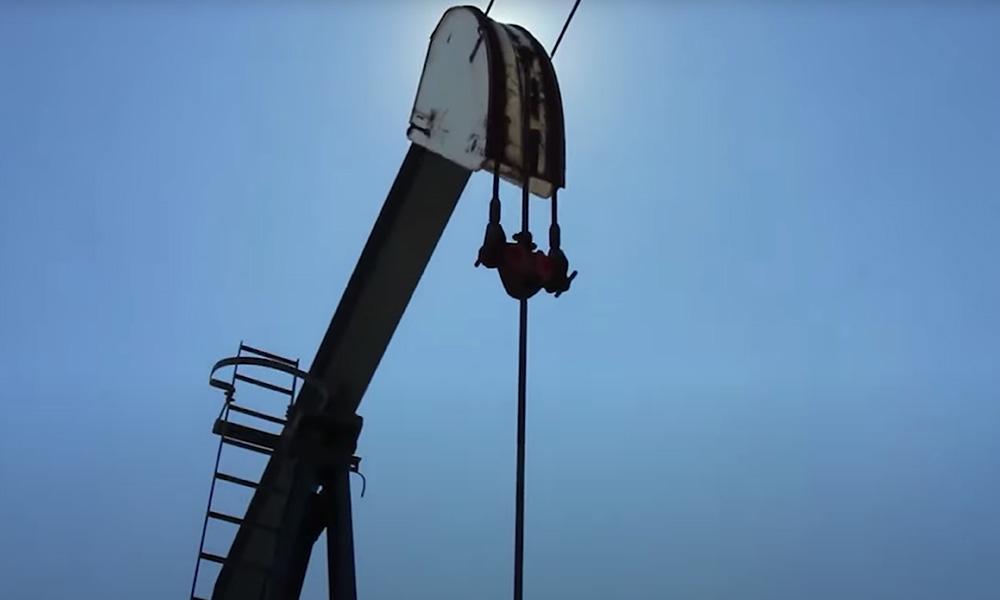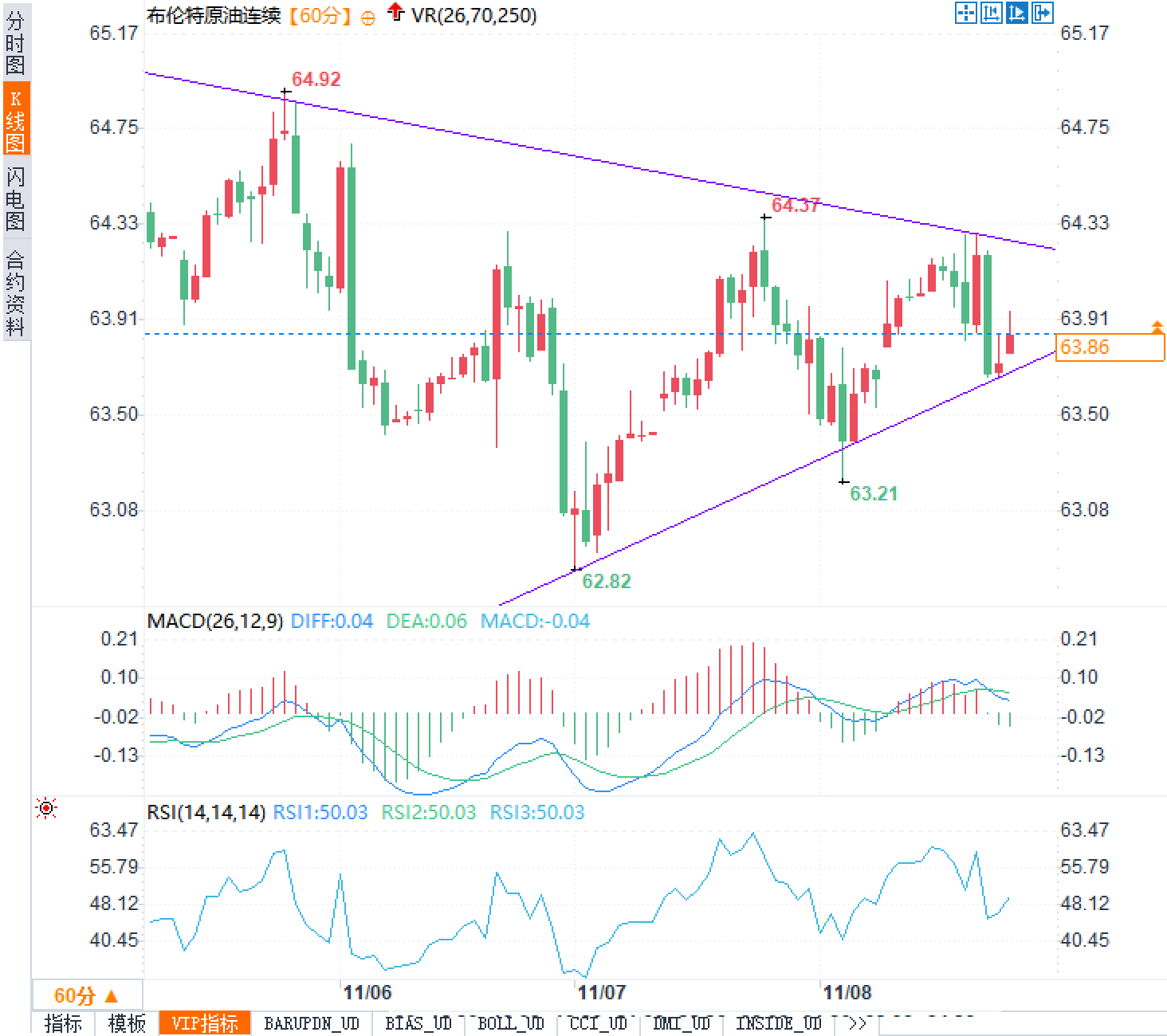If the Federal Reserve doesn't budge, OPEC+ won't dare to act, and crude oil can only breathe in the cracks.
2025-11-10 21:49:31

As the US government shutdown nears resolution, market risk appetite has marginally improved, and volatility in the US dollar and US Treasury yields has narrowed, providing a sentiment-driven boost to the energy sector. However, the Fed's inflation path and real interest rates remain relatively high, and the pressure of financing costs on end-user demand has not disappeared; this means that "evidence of demand recovery is still insufficient," making crude oil prices more susceptible to high-frequency variables. In the refined oil sector, the disruption to jet fuel demand caused by large-scale flight cancellations has raised market concerns, but this factor is more short-term and event-driven. Its impact on Brent crude is mainly reflected in fluctuations in crack spreads, which are then fed back to crude oil prices through refinery production adjustments. This transmission is typically delayed and easily masked by other variables.
The structural changes on the supply side are more substantial. Driven by compliance and sanctions timing, transaction and logistics costs for relevant Russian crude oil grades have increased. Two Indian refineries recently purchased a combination of crude oil grades from the US, West Asia, and the Gulf in the spot market: including West Texas Light, Murban, and Basra Medium, with deliveries concentrated in the first quarter of next year. This move sends two signals: first, buyers are proactively hedging against compliance uncertainties by locking in alternative resources in advance; second, shipping schedules from the Middle East and the Americas have been relatively brought forward, driving slight adjustments to spot premiums and freight structures for relevant grades.
From a broader supply and demand perspective, OPEC+ slightly increased its production plan in December, but signaled a "cautious approach" to the first quarter of 2026, indicating a prudent approach to supply and demand balance within the organization. The continued release of non-OPEC production is ongoing, increasing supply redundancy and putting downward pressure on Brent crude. A temporary rebound in US commercial crude oil inventories, coupled with a significant increase in floating storage in Asian coastal waters recently, reflects that some buyers are delaying delivery due to compliance factors such as sanctions and import quotas. The "flooding" effect of offshore storage is causing a temporary upward pressure on spot discounts. These phenomena all point to one conclusion: even if sentiment improves and drives a market rebound, without "hard evidence of demand" or "hard constraints on supply," the Brent rebound is more likely to exhibit cyclical and trading-driven characteristics.
Technical aspects
The hourly chart shows Brent crude oil trading within a converging triangle, currently priced at 63.86, close to the lower trendline formed by connecting 62.82 and 63.21; the upper trendline is limited by the line connecting 64.92 and 64.37, resulting in a continuously narrowing price range, with the price fluctuating around 63.9. Recent candlesticks show alternating upper and lower shadows, indicating increased divergence and converging volatility. The MACD is converging near the zero line, with shortening histogram bars, suggesting neutral to slightly weak momentum; the RSI hovers around 50, indicating an unclear trend direction.

In the short term, the center of gravity will likely shift within the 63.4-64.3 range. Pay attention to the effectiveness of the triangle boundary and whether there is a volume-price resonance. Also, pay attention to the performance of the previous low area of 63.21-62.82 and the resistance zone of 64.3-64.9 to assess the subsequent changes in rhythm and structure.
Outlook
Variables include: the wording and implementation details of OPEC+ meetings regarding production and voluntary production cuts; the marginal impact of the Fed's updates on inflation and employment on nominal and real interest rates; changes in the structure of US EIA inventory data for refined products and crude oil, especially the differences in inventory distribution between coastal and inland hubs; the rate of depletion of floating storage and the pace of arrivals at ports; and whether Indian refineries continue their procurement ratios for different sulfur and API concentrations. Essentially, Brent crude will only have the conditions for upward repricing if at least one of the following occurs: empirical evidence of demand (e.g., a steady recovery in apparent consumption of refined products and crack spreads) or a contraction in supply (e.g., a significant increase in effective supply costs due to compliance or a decrease in available transport capacity due to geopolitical shocks).
The current pricing of Brent crude is more like a tug-of-war between "emotional recovery and supply reality." The temporary easing of US fiscal uncertainty has given prices some flexibility; however, ample supply, inventory stratification, and logistical rebalancing have limited upside potential.
- Risk Warning and Disclaimer
- The market involves risk, and trading may not be suitable for all investors. This article is for reference only and does not constitute personal investment advice, nor does it take into account certain users’ specific investment objectives, financial situation, or other needs. Any investment decisions made based on this information are at your own risk.





















